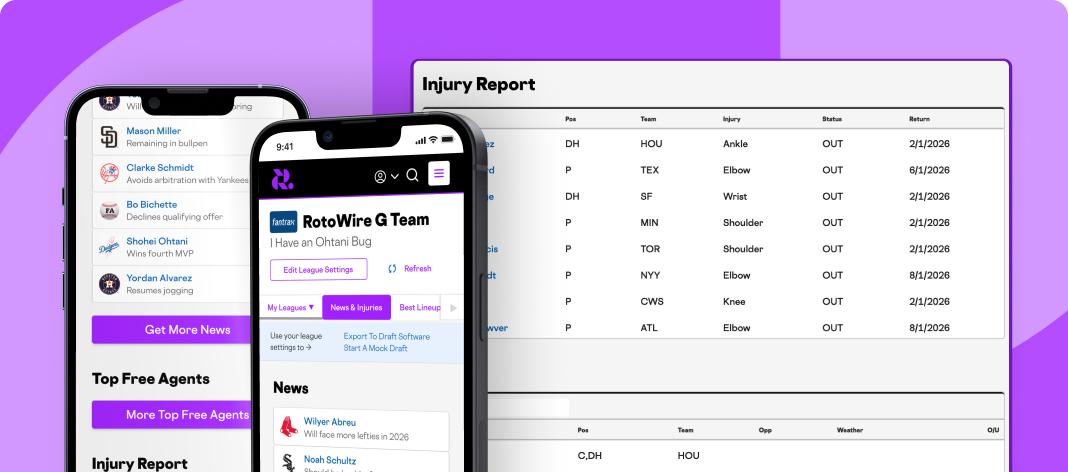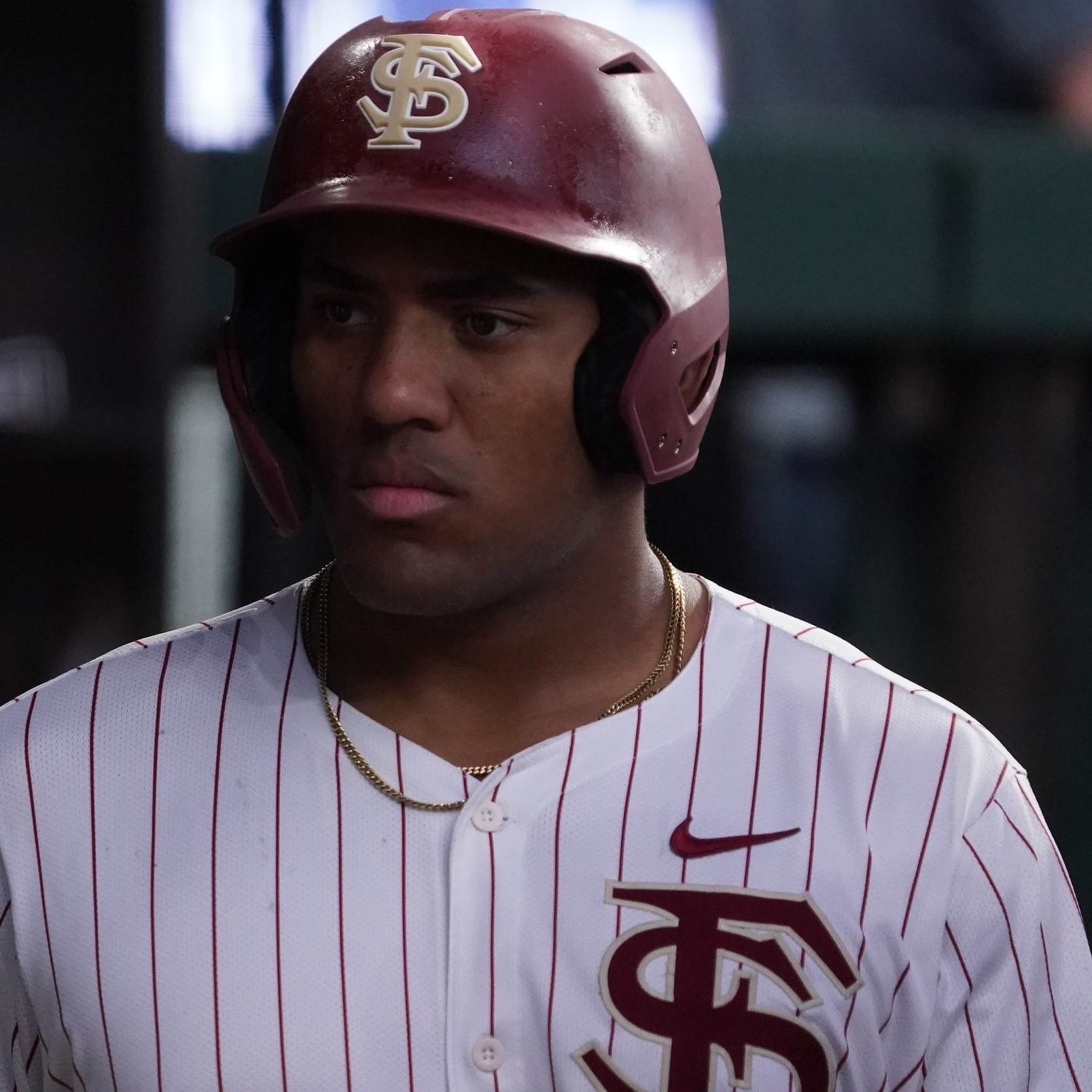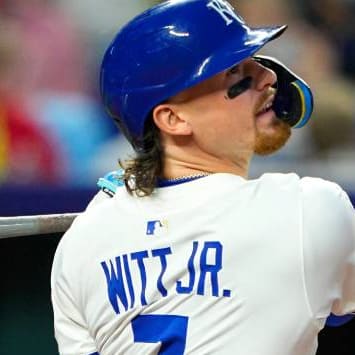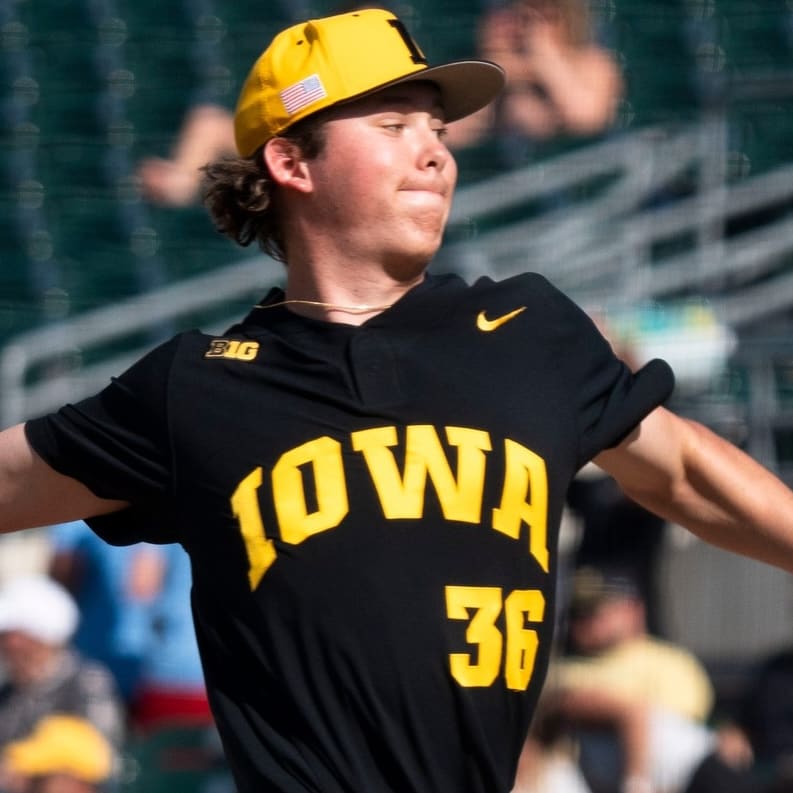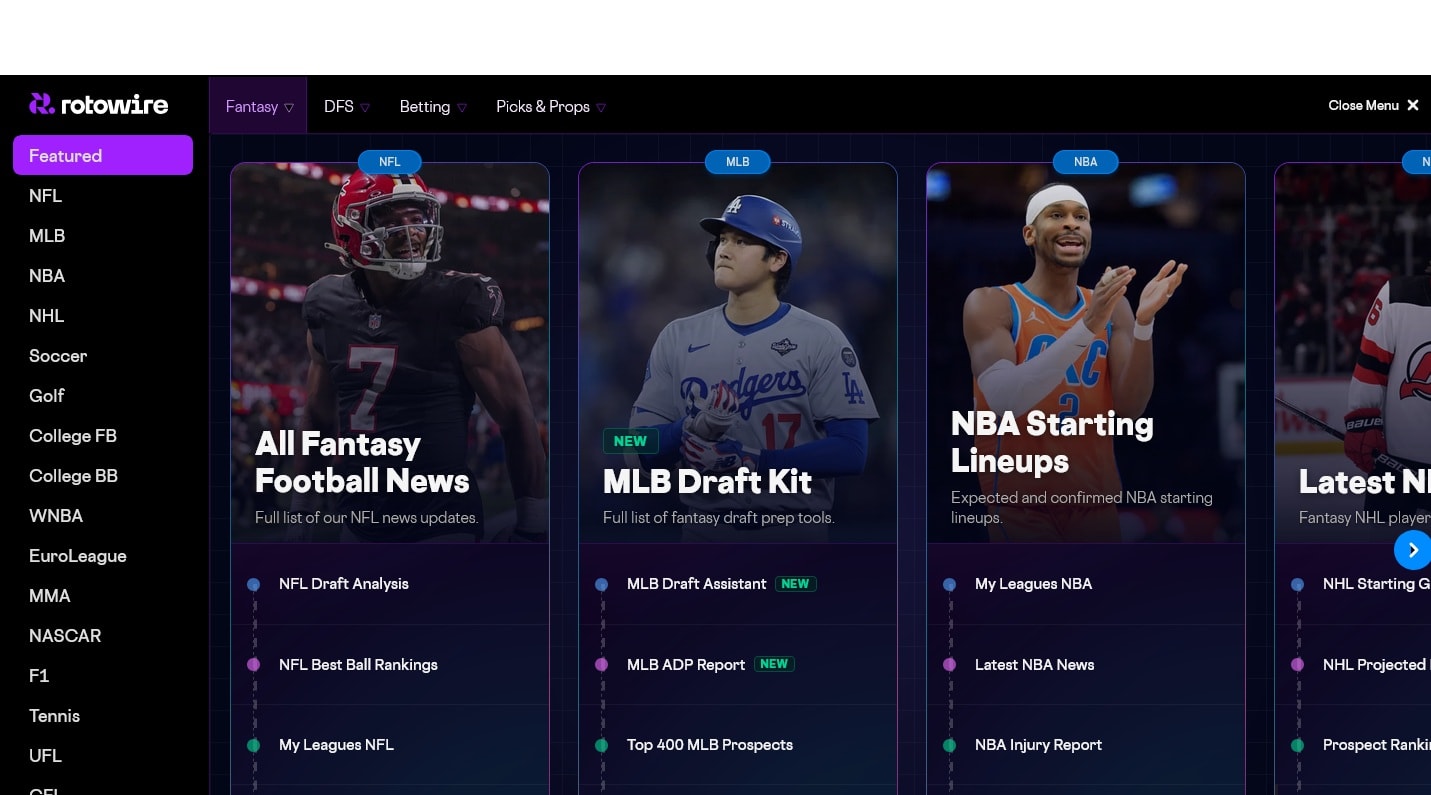I'll admit it, trading is not my forte. There are elements of the process at which I am bad, and others where I'm more uncomfortable than just not good at it. That said, in trading leagues, swapping players is one of the primary means of improving one's team, so I have developed practices to help mitigate being at a competitive disadvantage.
Trust me, I know all the tricks and philosophies. In fact, I've written about them for over 25 years. Still, there's a difference between knowing how to do something and optimal execution.
Let's start with what I'm not good at with respect to trading: pressing negotiations to extract every possible morsel of value. I have overpaid for every used car I've ever purchased. I know it's just business, and conflict is part of negotiations, but I've done my best to avoid conflict over the years (to a detriment), but that's just in my DNA. I know I've agreed to fantasy deals for which I could have negotiated an even better return. I guess this is an example of where being uncomfortable manifests as being bad.
I'm also uncomfortable instigating negotiations when I know I'll likely have multiple suitors, meaning I'll have to tell at least one other person I'm not accepting their offer. Again, I know it's just business, but it bothers me to tell someone their offer wasn't good enough so I'll be taking my business elsewhere. Yes, I always wait until everyone has made their best offer,
I'll admit it, trading is not my forte. There are elements of the process at which I am bad, and others where I'm more uncomfortable than just not good at it. That said, in trading leagues, swapping players is one of the primary means of improving one's team, so I have developed practices to help mitigate being at a competitive disadvantage.
Trust me, I know all the tricks and philosophies. In fact, I've written about them for over 25 years. Still, there's a difference between knowing how to do something and optimal execution.
Let's start with what I'm not good at with respect to trading: pressing negotiations to extract every possible morsel of value. I have overpaid for every used car I've ever purchased. I know it's just business, and conflict is part of negotiations, but I've done my best to avoid conflict over the years (to a detriment), but that's just in my DNA. I know I've agreed to fantasy deals for which I could have negotiated an even better return. I guess this is an example of where being uncomfortable manifests as being bad.
I'm also uncomfortable instigating negotiations when I know I'll likely have multiple suitors, meaning I'll have to tell at least one other person I'm not accepting their offer. Again, I know it's just business, but it bothers me to tell someone their offer wasn't good enough so I'll be taking my business elsewhere. Yes, I always wait until everyone has made their best offer, but I still need to reject it, which for me is uncomfortable.
One of my main credos when it comes to trading is that the side stimulating the negotiations should make the opening offer.
I'm interested in John Smith, is he available? If he is, what do you want for him?
What do I want? I want you to make an offer, or at least frame the discussion.
However, I realize there are some individuals even more sheepish than I, so if I see a nice match, I'll mention it. Otherwise, I'll confirm availability, but put the onus on the other person to table some names.
Trading is much like general social interaction for me. I'm fine when in the company of a relatively small number of good friends. Put me in a crowd of strangers, even if accompanied by friends, and I morph into the creepy guy in the corner.
If I'm only negotiating with one person, I have no issues exchanging proposals until we land on something mutually beneficial. It's just that not all deals can be consummated in that manner. Most often, competitors need to be played off each other to maximize the return.
I know I have trading deficiencies, so I have developed some defense mechanisms. Beyond my natural reticence, I'm not a fan of trading early in the season. That said, I want to let everyone know I'm approachable and congenial. As such, I do my best to consummate an early deal. Mastersball's founder and current Tampa Bay Rays scout Jason Grey would go so far as to agree to a deal most would see as benefiting the other person, hoping to garner the reputation of a patsy so he'd be approached for other deals in which he could spin his magic. I can't take it to that extreme, but if I am contacted early, I do what I can to find a deal, even if I see it as a parallel swap. At least now, others know I'm not averse to early trades, so maybe they'll come to me with an offer and we can negotiate something I feel is synergetic.
In short, I'm probably not going to initiate an early deal, but I want everyone else to feel comfortable getting in touch, confident it won't be a waste of their time.
Of course, there are occasions where circumstances dictate I need to address an early hole in my lineup. In these instances, I'll be proactive, following my own dictum and thus suggesting a deal. Usually, there are only one or two other managers with a roster matching my needs but also needing what I offer. Since this is more a matter of convincing the other party they'll benefit than playing several others off each other, I can routinely pull off this type of deal. No conflict? No problem.
As the season progresses, I'm more amenable to being proactive. The primary reason is deals tend to work themselves out once needs have been established on both sides. It's more math than old fashioned horse trading.
As I'm writing this, I'm realizing I'm fine dealing in redraft leagues since those almost always involve addressing needs, either positional or categorical. There isn't much competition for the best return. I have what you want, you have what I want, let's trade. Sure, I could be more proactive and not wait to be approached, but I don't think I've lost a redraft league due to a lack of trading acumen. I can name 1000 other reasons before failing to consummate a deal even registers a blip.
Keeper and dynasty leagues, however, are a different story. Here, the algebra isn't what we each gain in 10 categories, but whether my offer is going to help you win more than the other offers, or if I'm dealing you better keepers than anyone else. Either way, it is incumbent to maximize return and hence engage with as many parties as possible, but the more entities involved, the more times I have to say, "Sorry, I'm going elsewhere."
I try to make negotiations as objective as possible, using precedent to help drive the talks, but it still boils down to how I view the players relative to everyone else. This is especially the case when acquiring future pieces. Last season, I made a big trade in the XFL (a hybrid keeper/dynasty league), dealing a then-healthy Jacob deGrom and Byron Buxton for a package centered around an injured Jesus Luzardo. I received multiple offers for deGrom and Buxton, all involving great building blocks. Most were safer than Luzardo, but none had his ceiling. When it was announced I accepted the Luzardo offer, a couple of competitors weren't happy. I know it's just business, but it bothered me. The thing is, when one of my offers is rejected, I say, "Dang it, oh well", and move on. I know other do the same when I turn down their offer, but I'm still bummed.
Because I know I have issues in keeper and dynasty formats, I purposely don't compete in any with higher entry fees, except one. Of course, an entry fee being high or low is contextual, but I do play in one keeper league (with trading) that I consider to be a reasonably high entry fee. I've been in the league since 2010 yet cashed for the first time last season. That's embarrassing, especially for a keeper league with rules that facilitate a fast rebuild with a decent window to compete. Honestly, I finally had enough and traded with more of an edge last season. Maybe that's what it took to get me out of my shell.
I know most trade-oriented pieces are replete with "tricks of the trade", or examples of "the art of the deal." I have a few of my own up my sleeve, with my favorite ploy being to always offer the other person a choice, i.e. Player A plus either B or C.
Instead, I opted to just go with a free flow, stream of consciousness approach, hoping to generate some discussion. What are some of your trade hang-ups and how do you overcome them? Do you have any favored tactics or personal credos? Let's talk about it.
























